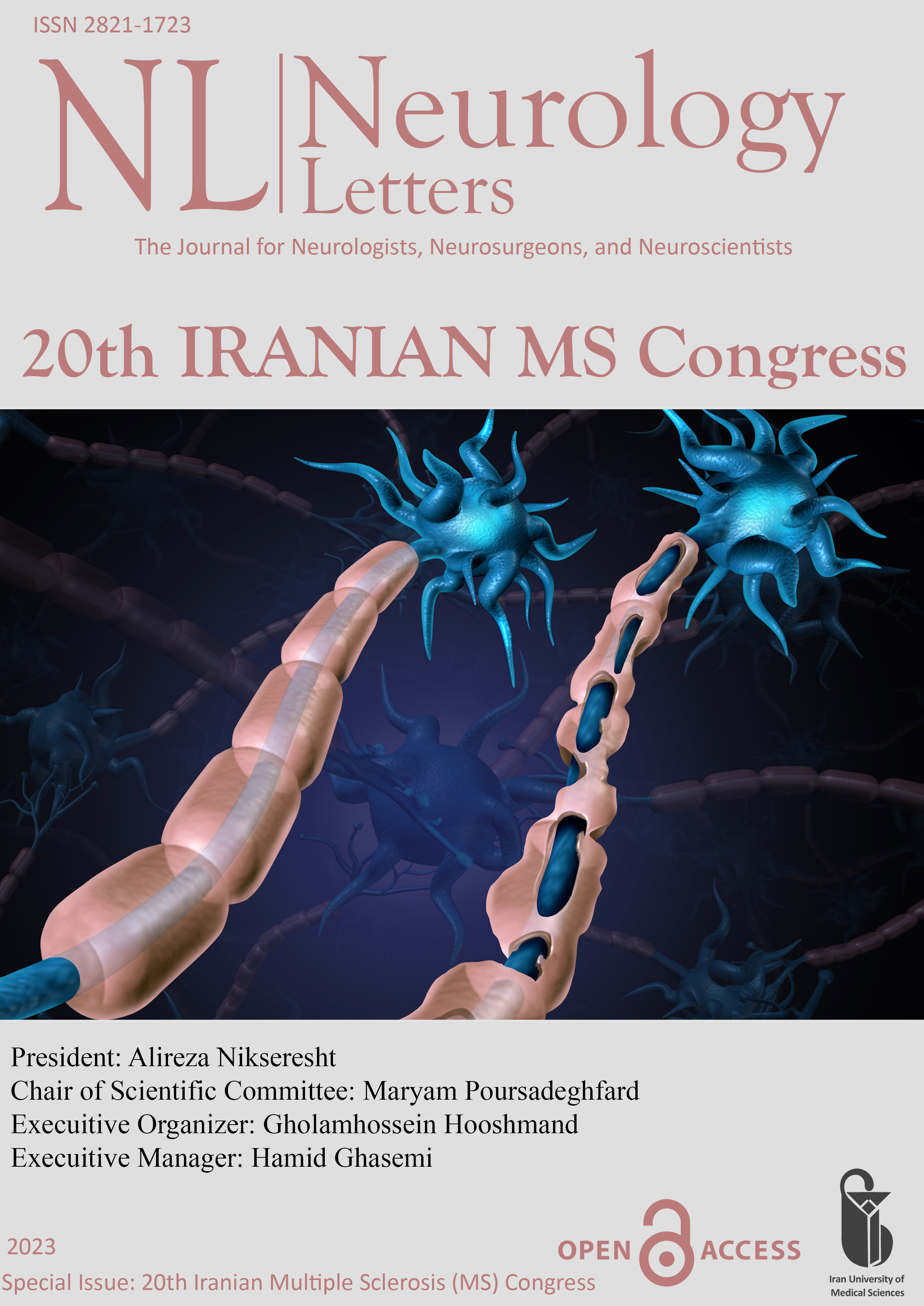MS and cognition: review of clinical, neuro-radiological features, and treatment (ORP-18)
Document Type : Oral Presentation
Author
Department of Neurology, Tabriz University of medical sciences, Tabriz, Iran
Abstract
Multiple sclerosis (MS) is a chronic inflammatory disease of the central nervous system (CNS) that damages the brain and spinal cord via various pathophysiological mechanisms. Although cognitive impairment (CI) is a common symptom in MS, it is usually disregarded in clinical evaluations. Cognitive impairment (CI) can present in all stages of multiple sclerosis and affects 40–60% of patients. All cognitive domains may be impaired in MS, but information processing speed (IPS), working memory, and learning memory are the most affected cognitive domains.
The Minimal Assessment of Cognitive Function in Multiple Sclerosis (MACFIMS) is currently the gold standard for the cognitive assessment of MS patients. The Symbol Digit Modalities Test (SDMT) showed higher sensitivity for cognitive dysfunction in MS and is now widely acknowledged as the gold standard for a quick cognitive screening.However, the test is not specific and is limited to processing speed assessment, overlooking other relevant cognitive domains such as learning and memory (see cognitive profile section).
MRI assessment in cognitive impairment: Subsequent attempts to visualize more subtle damage, by use of more advanced MRI techniques, such as magnetization transfer, diffusion tensor imaging, and T1 relaxometry, indicated widespread damage to brain tissue that appeared normal on conventional T1-weighted or T2-weighted MRI. Other improvements in MRI technology included double inversion recovery, providing visualization of cortical lesions, which were robustly correlated with cognitive decline. Network functional MRI studies indicate that cognitive decline is explained by an accruing destabilization of the brain network physiology.
Treatment of cognitive impairment: Disease-modifying treatments (DMTs) effects on cognitive impairment are mostly unknown. Despite the widespread use of different DMTs in MS, there is no consensus as to which therapy effectively improves cognitive impairment, one of the most frequent and debilitating symptoms of the disease. Currently, no clinical guidelines exist on whether cognitive impairment or its longitudinal progression presents the need in its own right for changing the DMT.
Keywords
 Neurology Letters
Neurology Letters
